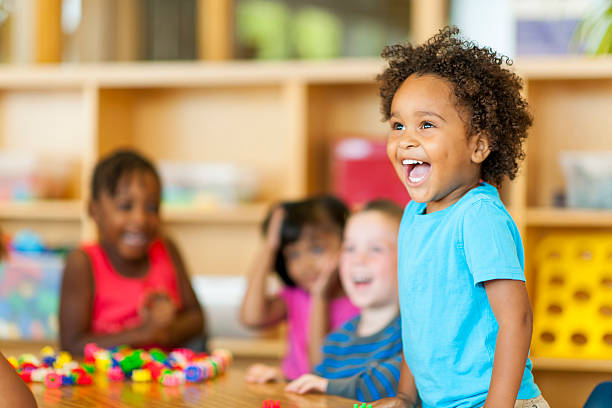The Importance of Early Learning Environments
Preschool is more than just a place where children spend their time before entering kindergarten. It is the foundation of a child’s educational journey. These early years are critical for cognitive development, language acquisition, emotional growth, and social interaction. A well-structured preschool program introduces children to the joy of learning in a safe and nurturing environment.
At this stage, children’s brains are incredibly active and adaptable. They absorb information quickly, mimic behaviors, and start forming habits that can influence their future academic and personal lives. A quality preschool harnesses this potential and helps build the necessary skills for success in school and beyond.

Academic Preparation Through Play
While academic skills are important, preschools use play-based learning to make education engaging and meaningful. Concepts like numbers, letters, and shapes are introduced in ways that feel like fun rather than structured lessons. Whether it’s singing an alphabet song, counting blocks, or matching colors, children develop early literacy and numeracy skills through activities that encourage exploration and curiosity.
Benefits of Play-Based Learning
- Improves memory and attention span
- Boosts creativity and imagination
- Supports fine and gross motor skills
- Develops problem-solving abilities
- Encourages collaboration and communication
This approach ensures that learning is enjoyable and helps foster a lifelong love for discovery.
Social and Emotional Development
Preschool is often the first setting where children interact with peers outside their family circle. Through group play, shared projects, and classroom routines, children learn vital social skills such as sharing, turn-taking, empathy, and respect for others. Teachers guide children through conflict resolution and emotional regulation, helping them recognize and manage their feelings.
Emotional Skills Fostered in Preschool
| Skill | Description |
|---|---|
| Empathy | Understanding and relating to others’ feelings |
| Self-Regulation | Managing impulses and behaviors in various situations |
| Confidence | Developing a sense of independence and self-worth |
These emotional skills are not only vital for a smooth transition into kindergarten but are also fundamental to a child’s long-term well-being.
Preschool and Parental Involvement
Parents play a critical role in supporting preschool education. Open communication between teachers and families ensures that children’s needs are being met both at school and at home. Many preschools encourage parental involvement through activities such as:
- Parent-teacher conferences
- Classroom volunteering
- Take-home learning kits
- Family reading nights
When parents are engaged, children often perform better academically and develop more positive attitudes toward learning.
Choosing the Right Preschool
Not all preschools are created equal, so it’s essential to find a program that matches your child’s needs and family values. Some key factors to consider include:
Checklist for Evaluating Preschools
| Criteria | What to Look For |
|---|---|
| Teacher Qualifications | Educators with training in early childhood education |
| Classroom Environment | Safe, welcoming, and equipped with age-appropriate materials |
| Curriculum | Balanced approach that includes academics, play, and emotional development |
| Teacher-to-Child Ratio | Smaller groups allow for personalized attention |
| Parent Communication | Regular updates and opportunities for involvement |
Taking the time to visit potential preschools and asking the right questions can make a significant difference in your child’s early learning experience.
Long-Term Benefits of Preschool Education
Research consistently shows that children who attend high-quality preschool programs are more likely to succeed academically, graduate from high school, and pursue higher education. They also exhibit stronger social skills and are less likely to experience behavioral problems.
These long-term benefits make preschool one of the most important investments a family can make in a child’s future. It sets the stage for a smooth transition to elementary school and builds the confidence and skills children need to thrive.
Conclusion
Preschool education is a crucial stepping stone in a child’s life. It nurtures curiosity, fosters social skills, and prepares young minds for the structured world of schooling. Choosing the right preschool can empower your child with the tools and confidence they need to flourish, both academically and personally. By understanding its value and investing in the right early learning environment, parents give their children a strong start that can benefit them for a lifetime.